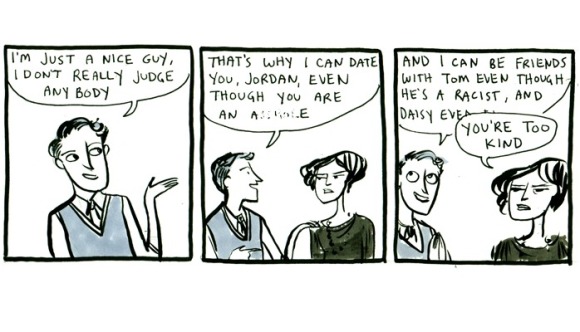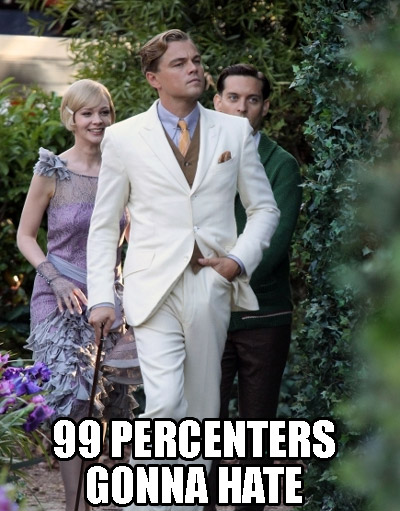The opening of a story sets the lens through which the rest of the story will be understood. When we read “It was the best of times, it was the worst of times,” Dickens is grooming us to look for parallels to compare and contrast with one another. When Austen announces that ” It is a truth universally acknowledged, that a single man in possession of a good fortune, must be in want of a wife,” the reader is prepared that this is a work about social status–money and marriage.
So when Baz Luhrman’s The Great Gatsby changed the opening lines, changed the wisdom Nick Carraway recounts from his father, they aren’t merely changing a line. They’re changing our lens to a new focus–a softer one.
The movie begins with Nick stating that his father told him to “look for the best in everyone.” As a result, the story becomes a narrative about compassion, empathy, kindness. The audience is asking themselves: What features make Gatsby great, despite his shortcomings? Can we see them despite his criminal behavior and emotional immaturity, as Nick so obviously does? Can we forgive Tom and Daisy for their carelessness and see the best in them?
The novel gives us a much stronger lens, both poignant and relevant, especially in the wake of the Occupy movement:
In my younger and more vulnerable years my father gave me some advice that I’ve been turning over in my mind ever since.
“Whenever you feel like criticizing any one,” he told me, “just remember that all the people in this world haven’t had the advantages that you’ve had.”
And with holding that advice intact, the narrative becomes something entirely beyond empathy. It becomes a criticism of the American Dream, a portrayal of rugged individualism turned sour, a critique of the wealth that enables and encourages carelessness. We see Gatsby as a victim of a system that lied to him about wealth and equality–he could never make the jump from being new money to being old money, can never bridge the gap between West Egg and East Egg. We stop pitying George for his poverty and see it as the direct result of Tom’s manipulation. We see the way that Daisy, an eternal soul, becomes a display of wealth just as much as the cut and quality of a suit.
We see that hope and perseverance just aren’t enough in a system as broken as ours.

